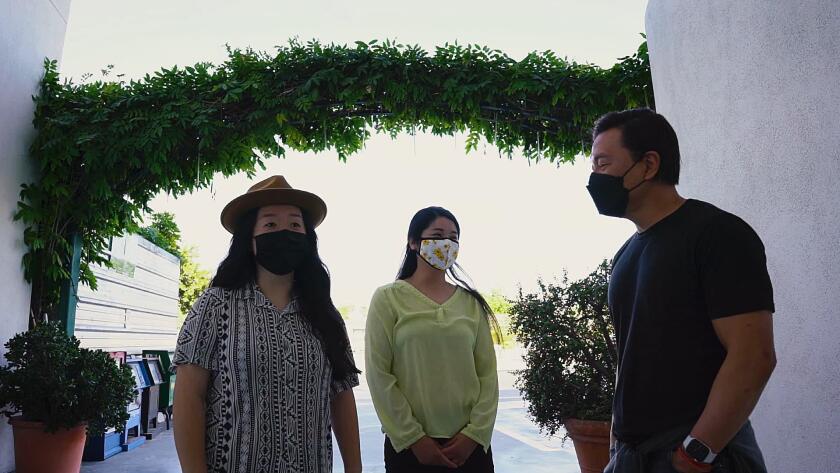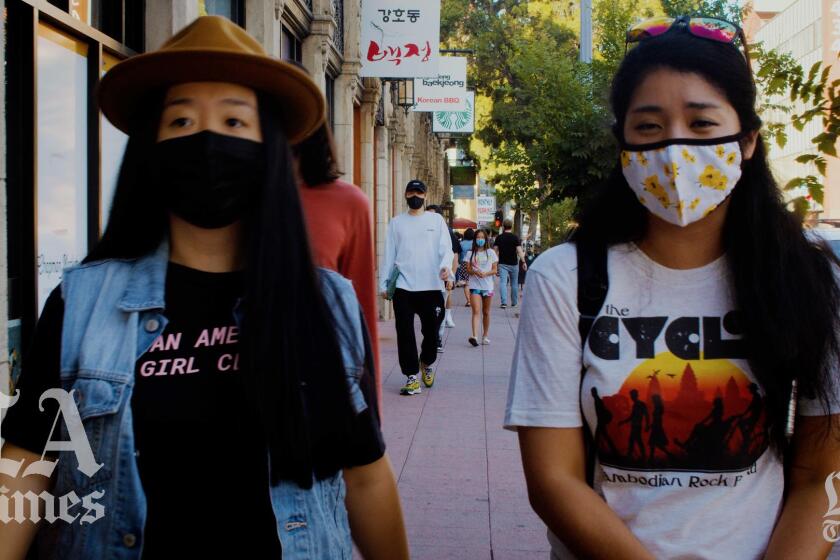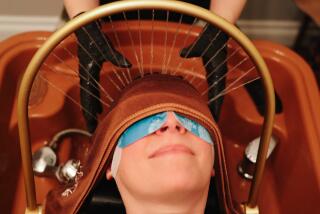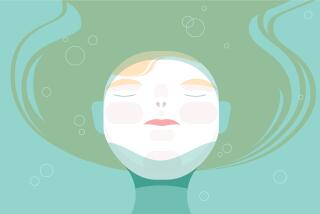What’s it like to go to a Korean spa? Navigating L.A.’s reopening with ‘Good Trouble’s’ Sherry Cola
Saunas, pools, hot tubs, lots of skin. What should people be thinking about as they return to the spas of Koreatown? We asked experts and went to one with actress and comedian Sherry Cola to find out.
For the months that Korean spas were shut down during the pandemic, customers were aching to go back to their reliable sources of relaxation and escape — whether it was getting a body scrub; alternating between the hot tub and a cold bath; or lying in sauna rooms lined with gold, clay, mineral salt or ice.
To better understand what it’s like to return to the spa, we enlisted the help of actress and comedian Sherry Cola (“Good Trouble”) and spent an afternoon at Century Day & Night Spa before California’s regulations were relaxed June 15. And we asked experts about any risk.
Especially if the case rates are low, and the facility is following CDC guidelines, Cedars-Sinai Medical Center infectious disease physician Dr. Catherine Le said Korean spas are low risk for coronavirus infections.
In L.A., COVID-19 rates are close to where they were in February 2020 and vaccination rates are high.
Century Day & Night Spa opened about a month ago with strict precautions. Proof of vaccination or a negative COVID-19 test within the last three days is a requirement for entry. For now, social distancing, temperature screening at check-in, reduced capacity and mask usage are recommended inside the facility.
Manager Edward Kim said although it was nerve-wracking to be closed for so long, he wanted to make sure it was safe before they reopened. He opened the spa’s outdoor golf driving range earlier in the year for the community to have a safe space to unwind.
Numbers, variants and vaccines
But what is the risk of the various indoor spa activities?
The coronavirus doesn’t spread through water, so there’s no coronavirus to worry about in the water of the jimjilbang’s spas and pools.
But what about a sauna, where you’re in close quarters in a space that is not well ventilated?
Le admitted she didn’t like saunas even before the pandemic.
“I’m an infectious disease physician, so I’m a little bit of a germaphobe,” she said. “But the good thing is that viruses don’t actually love hot and humid climate and conditions.”
Other germs are more of a worry in a sauna.
“I think the stigma that spas and saunas get really has more to do with bacterial illness and bacterial pathogens that love moist environments,” Le said. “Think about mold ... and lots of outbreaks related to hot tubs and air conditioning units not working.”
We consulted experts before going to Koreatown with actress and comedian Sherry Cola of “Good Trouble.” We learned about how to make decisions and mitigate risk of coronavirus and other germs while going to a spa, a Korean barbecue restaurant and karaoke with friends.
Also, because the virus that causes COVID-19 doesn’t live for very long in the air or on surfaces, you don’t need to worry about people who were previously in the sauna — only the people you’re in the sauna with.
Emily Oster is a Brown University economist who has been studying COVID-19 data.
“I would go to a Korean spa,” Oster said. “I’ve already gotten a massage. I would not go into a sauna with people I didn’t know. But I would go into a spa, I would go into a pool, and I would go into a sauna with people I did know. If they were vaccinated, I’d feel very comfortable doing that.”
Things to keep in mind in a reopened California
More to Read
Sign up for Essential California
The most important California stories and recommendations in your inbox every morning.
You may occasionally receive promotional content from the Los Angeles Times.













